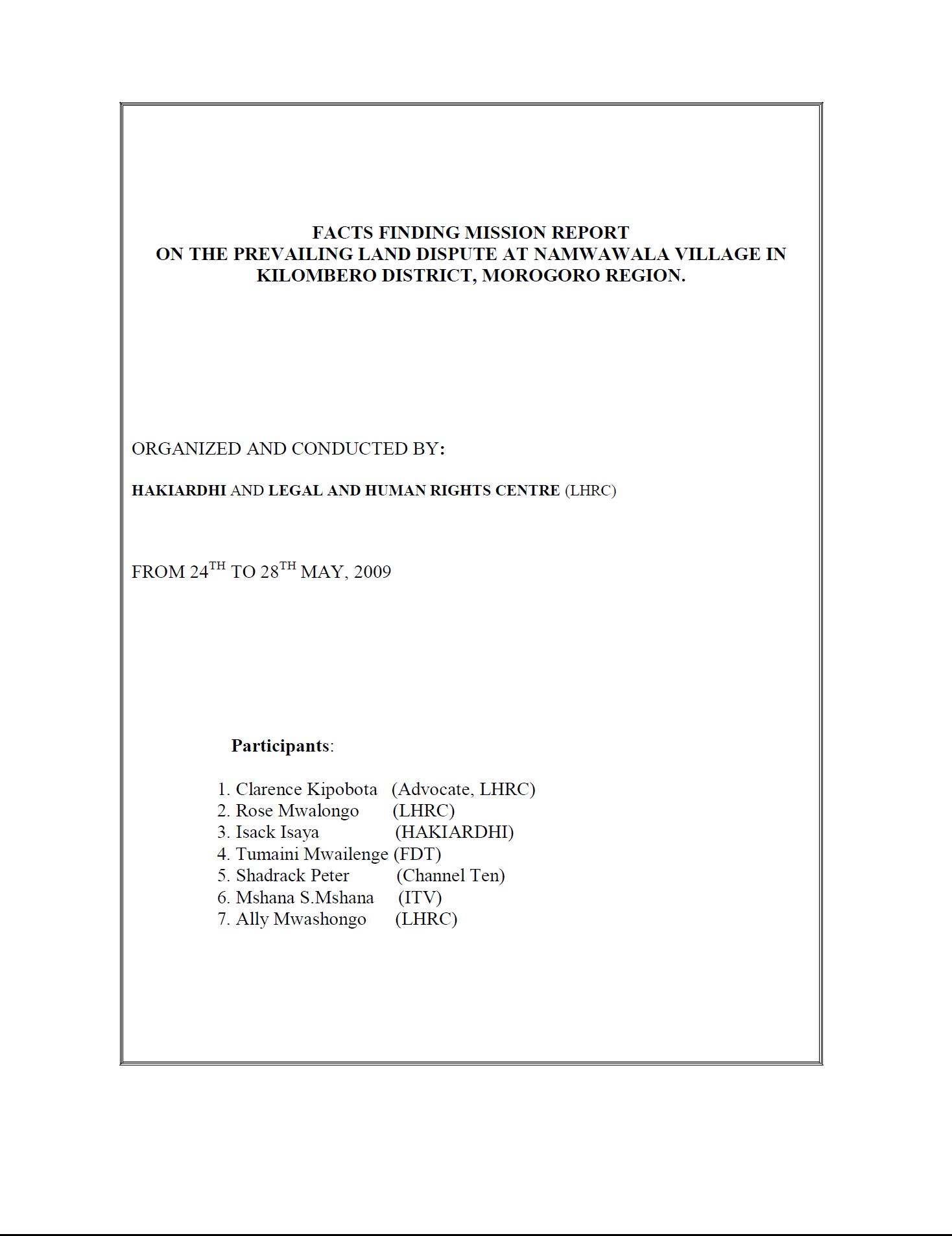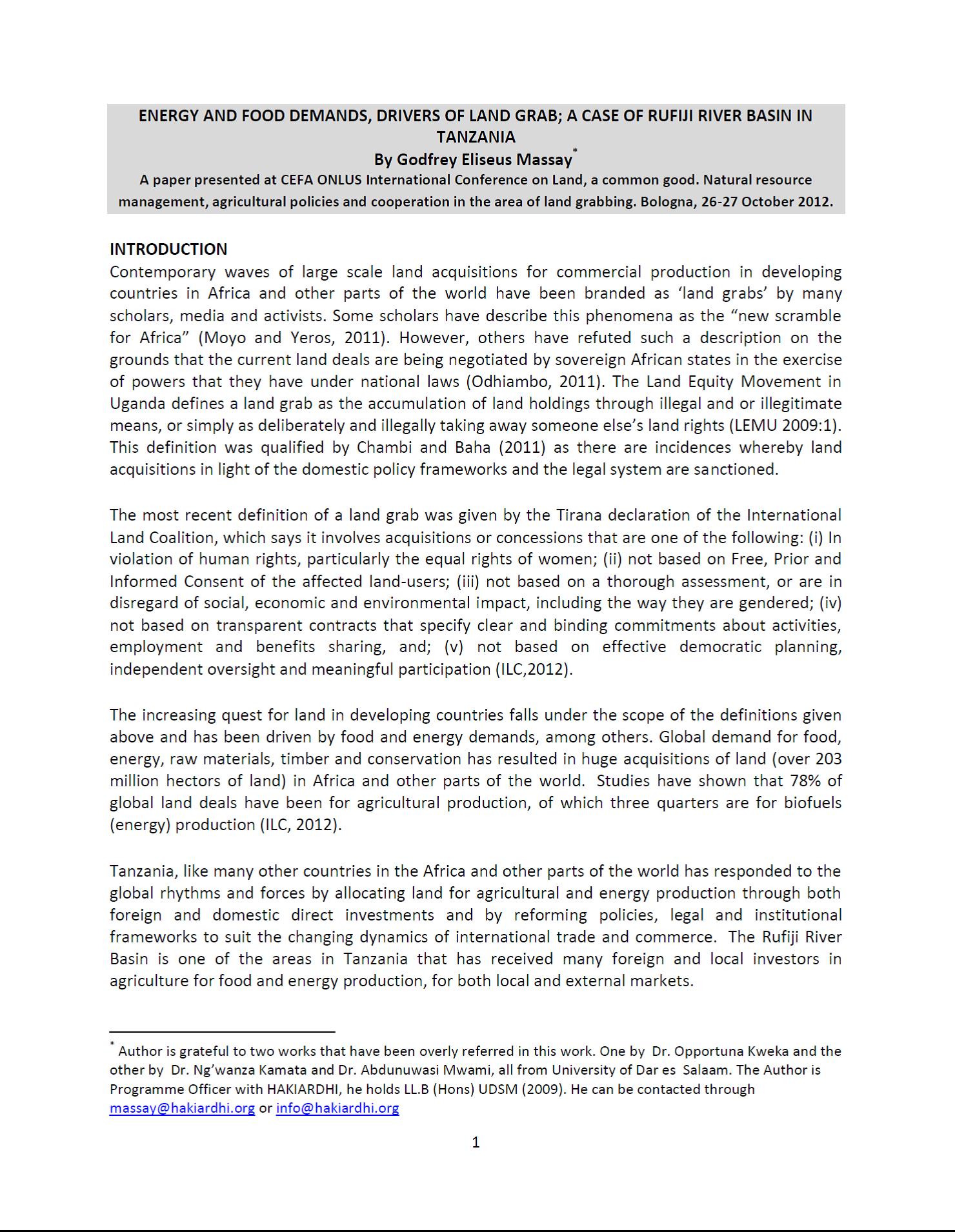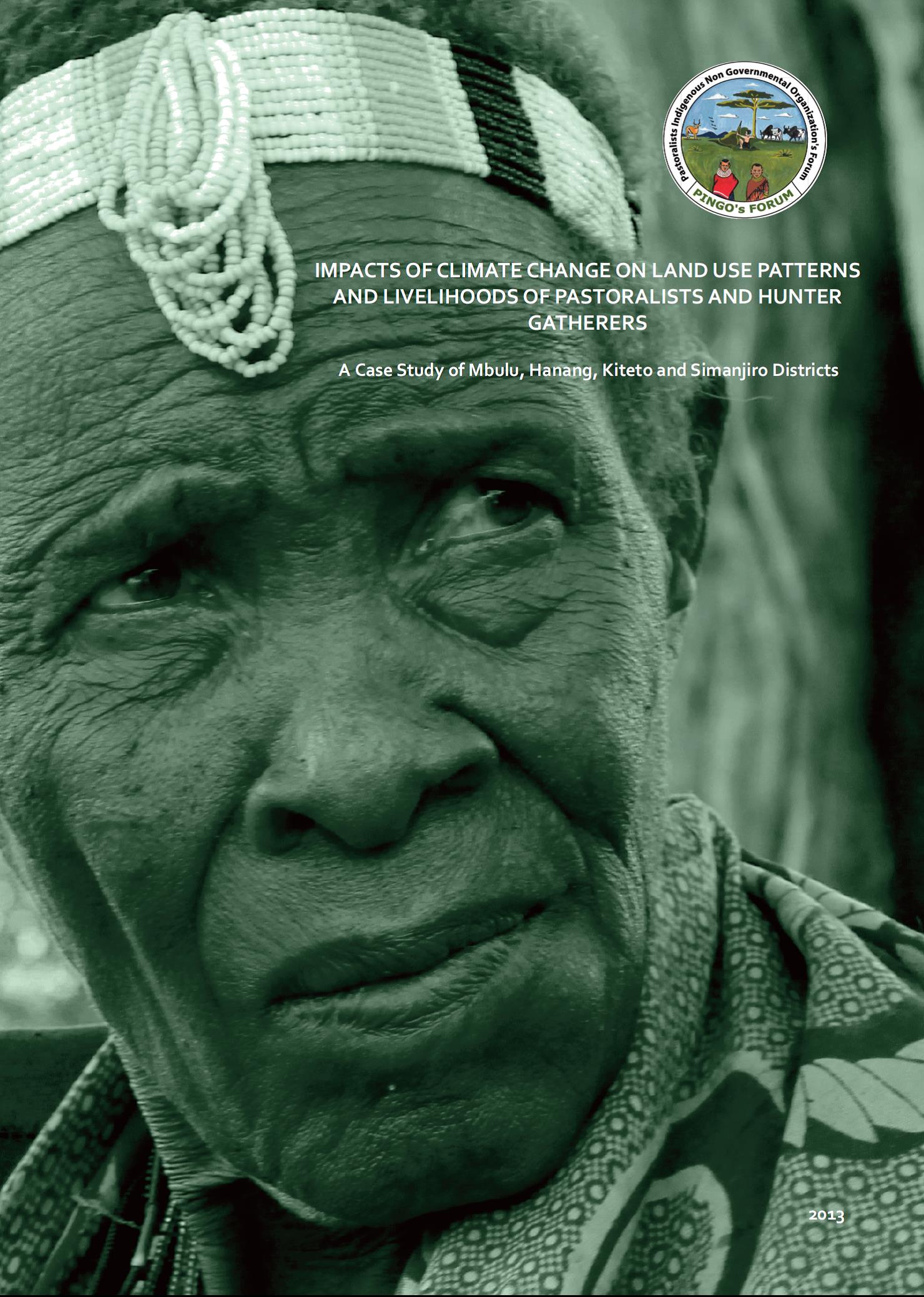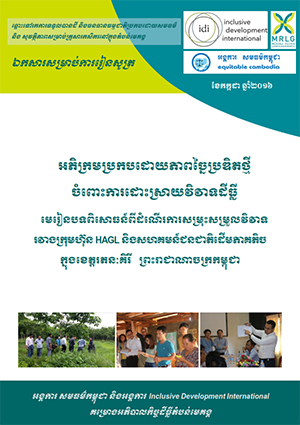Fact Finding Mission Report on the Prevailing Land Dispute at Namwawala Village in Kilombero District, Morogoro Region
This is the report relating to the facts finding mission conducted by HAKIARDHI and LHRC as an intervention in response to an outcry from the villagers at Namwawala village in Kilombero district, Morogoro region, owing to the alleged plan of the government to take possession of the village land for investment purposes.




